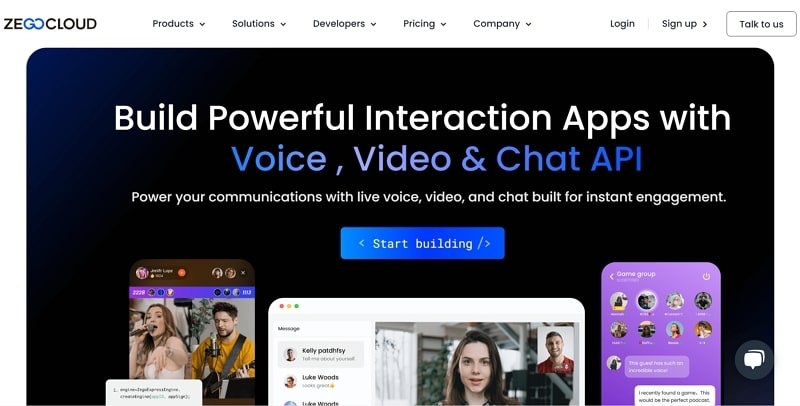Effective project collaboration is essential for achieving goals, meeting deadlines, and ensuring the smooth execution of tasks. Whether you are part of a small team or a large organization, successful collaboration can significantly enhance productivity and drive innovation. In this article, we will explore seven crucial tips to help you and your team collaborate more effectively, ensuring that your projects are completed efficiently and to the highest standard.
What is Project Collaboration?
Project collaboration is the process where team members work together to achieve common goals and complete specific tasks within a project. It involves the sharing of information, resources, and responsibilities to ensure alignment and cooperation among all participants. Through effective communication, coordination, and mutual support, project collaboration allows teams to leverage each member’s strengths and expertise.
In a collaborative project environment, team members contribute their skills and knowledge, participate in decision-making, and collectively solve problems. This approach not only enhances productivity and efficiency but also fosters innovation and creativity. By working collaboratively, teams can overcome challenges more effectively, ensure that deadlines are met, and achieve higher-quality outcomes.
Why Project Collaboration is Important?
Project collaboration helps us to do better at projects. Collaborative project is crucial for multiple reasons and they are given below –
- Better Communication: You can allow every team member to communicate openly and clearly. It will prevent misunderstanding and ensure everyone is aiming for the same goal.
- Getting Work Done Faster: Tasks can be finished more efficiently and quickly if team members work well together. To solve issues and find better ways to do things, people can share their knowledge and skills. Again, work gets done faster when a bunch of people do one task together.
- More Creativity: People bring different ideas and ways of thinking to the table when they collaborate. It could lead to new and innovative approaches. Also, working as a team can boost morale and motivation. It will provide you with better performance and outcomes.
- Smarter Decision-Making: You can find better decisions and solutions when people with different ideas and perspectives work together. Teams can come up with more creative solutions to issues by combining knowledge and experience.
- Better Quality: Collaboration helps you to control quality. Team members can give helpful feedback by reviewing each other’s work. It will help to produce the best possible results by ensuring the projects are done perfectly.
Project Management vs Project Collaboration
They are both essential components of successful project execution, but they serve different purposes and involve distinct processes.
Project Management is the overall planning, organization, and control of a project. It involves defining project goals, creating a roadmap, allocating resources, managing budgets, and monitoring progress to ensure that the project is completed on time and within scope. The project manager typically oversees these activities, using various tools and methodologies to keep the project on track.
Project Collaboration, on the other hand, focuses on the day-to-day interactions and teamwork required to accomplish project tasks. It involves communication, coordination, and cooperation among team members to achieve common objectives. Project collaboration emphasizes the collective effort of the team, utilizing shared tools and platforms to enhance communication, share information, and solve problems together.
| Aspect | Project Management | Project Collaboration |
|---|---|---|
| Definition | Overall planning, organization, and control of a project | Day-to-day interactions and teamwork to accomplish tasks |
| Focus | Planning, resource allocation, budgeting, progress monitoring | The project manager oversees and directs activities |
| Role | Enhance teamwork, improve communication, and achieve common objectives | Team members contribute and interact collaboratively |
| Tools | Gantt charts, project management software (e.g., MS Project, Asana) | Communication platforms (e.g., Slack, Teams), collaborative tools (e.g., Google Docs) |
| Goals | Ensure project completion on time, within budget, and to scope | Enhance teamwork, improve communication, achieve common objectives |
| Activities | Defining goals, creating roadmaps, managing risks | Sharing information, problem-solving, collective decision-making |
| Outcome | Successful delivery of the project | Efficient and effective teamwork, improved project outcomes |
By understanding the differences between project management and project collaboration, teams can better integrate both aspects to achieve successful project execution. Effective project management ensures that the project is well-structured and on track, while project collaboration ensures that team members are working together efficiently to complete tasks and solve problems.
7 Tips for Better Project Collaboration
Effective project collaboration is key to achieving successful outcomes and fostering a productive team environment. Here are seven tips to enhance your project collaboration efforts:
1. Establish Clear Goals and Roles
Clearly define the project’s objectives, deliverables, and each team member’s role. This ensures everyone knows what is expected of them and works towards the same goals. When roles and goals are clear, team members can focus on their tasks with a sense of purpose and direction.
2. Utilize Collaboration Tools
Leverage digital tools to streamline communication and document sharing. Platforms like Slack for messaging, Trello for task management, and Google Drive for file sharing can significantly improve collaboration efficiency. These tools help keep everyone on the same page and make it easier to track progress and share updates.
3. Maintain Open Communication
Encourage open and transparent communication among team members. Regular check-ins, updates, and feedback sessions help to keep everyone informed and engaged. Open communication fosters a collaborative environment where team members feel comfortable sharing ideas and addressing issues promptly.
4. Foster a Collaborative Culture
Promote a culture that values teamwork and collective problem-solving. Encourage team members to share their ideas and collaborate on solutions. Recognize and reward collaborative efforts to reinforce the importance of working together.
5. Use ZEGOCLOUD for Seamless Communication
Integrate ZEGOCLOUD into your collaboration strategy for high-quality video conferencing and real-time messaging. ZEGOCLOUD’s robust communication features enable smooth virtual meetings and instant communication, enhancing team collaboration. This ensures that team members can connect easily, regardless of their physical location, making remote collaboration more effective.
6. Set Up Regular Meetings
Schedule regular meetings to discuss project progress, address any issues, and plan next steps. These meetings help keep the project on track and provide a forum for team members to voice their concerns and suggestions. Regular meetings ensure everyone is aligned and can contribute to the project’s success.
7. Encourage Continuous Learning and Improvement
Promote a mindset of continuous learning and improvement within the team. Encourage team members to seek out new skills, share knowledge, and reflect on their experiences to find ways to enhance collaboration. Continuous improvement helps the team adapt to changes and improve their collaborative processes over time.
Elevate Your Project Collaboration with ZEGOCLOUD: The Ultimate Communication Solution
ZEGOCLOUD is a comprehensive communication platform that offers robust solutions for video calls, in-app messaging, and interactive features. With ZEGOCLOUD, teams can connect effortlessly, share information instantly, and collaborate online more effectively, regardless of their physical location.

Key Features of ZEGOCLOUD for Project Collaboration:
- High-Quality Video Conferencing: ZEGOCLOUD provides crystal-clear video and audio, making virtual meetings as effective as face-to-face interactions. This is essential for discussing plans, brainstorming ideas, and making decisions in real time.
- Real-Time Messaging: Stay connected with instant messaging features that support both text and multimedia communication. This ensures that team members can quickly share updates, ask questions, and provide feedback, fostering a more collaborative environment.
- Interactive Whiteboards: ZEGOCLOUD’s interactive whiteboards allow team members to brainstorm, draw diagrams, and share notes in real time. This feature is perfect for creative sessions and project planning.
- Screen Sharing and Remote Control: Enhance your presentations and troubleshooting sessions with screen sharing and remote control capabilities. These features enable users to share their screens and control each other’s desktops for more interactive and efficient problem-solving.
- Seamless Integration: ZEGOCLOUD integrates effortlessly with other productivity tools like Trello, Asana, and Google Workspace, ensuring that your team can incorporate ZEGOCLOUD’s features into their existing workflows without disruption.
- Robust Security: With end-to-end encryption and stringent security measures, ZEGOCLOUD ensures that your communications remain confidential and secure, providing peace of mind during collaborative processes.
By integrating ZEGOCLOUD into your project collaboration strategy, you can streamline workflows, enhance communication, and foster a more connected and productive team environment. Experience the difference that ZEGOCLOUD can make in your project collaboration efforts and unlock new levels of efficiency and success.
Final Words
Successful project collaboration is key to achieving goals and enhancing team productivity. By setting clear goals, using effective collaboration tools, maintaining open communication, and fostering a collaborative culture, teams can work more efficiently and cohesively. Regular meetings and continuous learning further strengthen collaboration.
Integrating robust communication solutions like ZEGOCLOUD enhances these efforts with high-quality video conferencing and real-time messaging, ensuring smooth communication. Embrace these strategies to elevate your project collaboration and achieve better outcomes.
Read more:
Project Collaboration FAQ
Q1: What are the key benefits of project collaboration?
The key benefits of project collaboration include improved productivity, enhanced creativity, better problem-solving, increased engagement among team members, and more efficient use of resources. Collaboration also fosters a sense of teamwork and can lead to higher-quality outcomes.
Q2: What tools are commonly used for project collaboration?
Common tools used for project collaboration include platforms like Trello, Asana, Slack, Microsoft Teams, and Google Workspace. These tools provide features such as task management, file sharing, real-time communication, and collaborative document editing.
Q3: What are the challenges of project collaboration and how can they be addressed?
Common challenges of project collaboration include communication barriers, coordinating across different time zones, and varying work styles. These can be addressed by setting clear expectations, using effective collaboration tools, scheduling regular check-ins, and fostering an inclusive team culture where everyone feels valued and heard.
Let’s Build APP Together
Start building with real-time video, voice & chat SDK for apps today!










